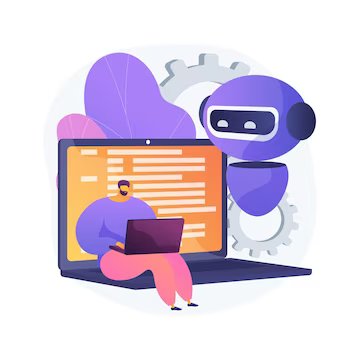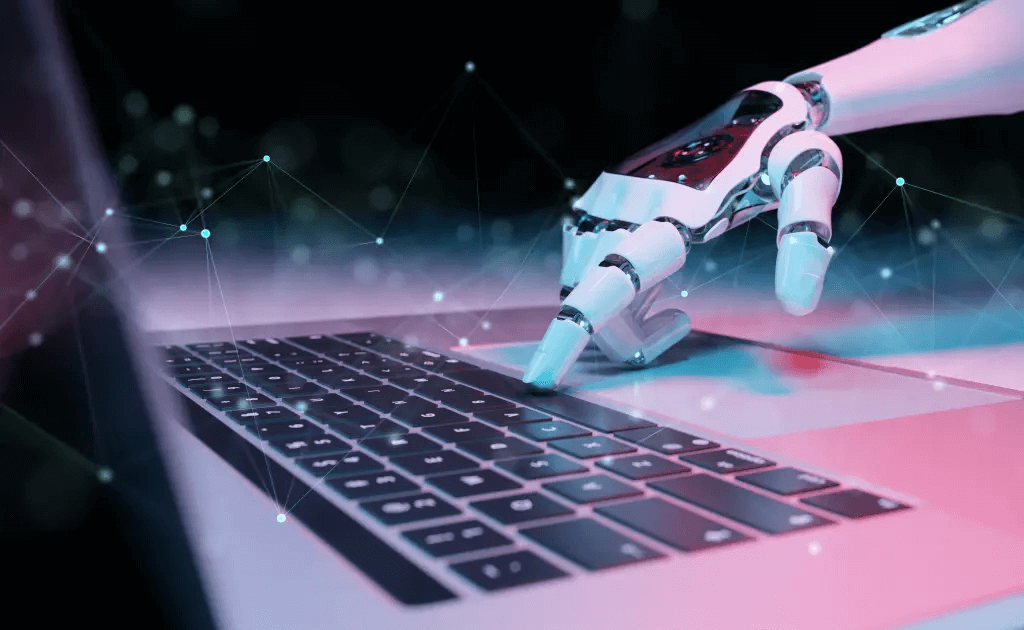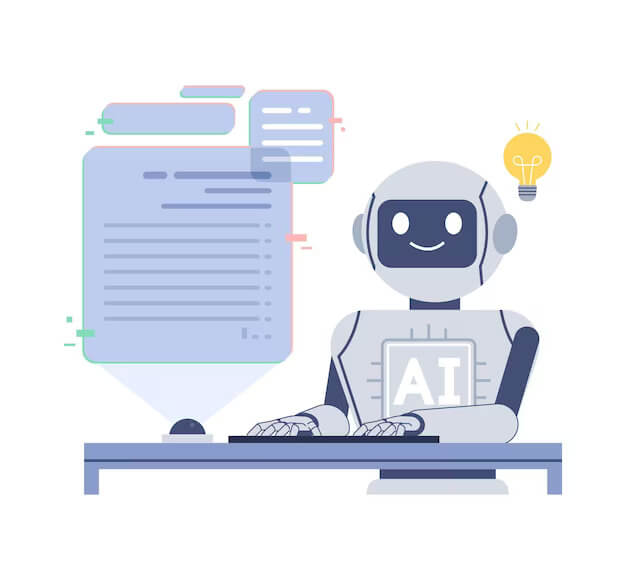AI Job Market in Healthcare Informatics: Revolutionizing Healthcare with AI Careers

Are you curious about the dynamic and rapidly evolving world of healthcare informatics powered by artificial intelligence (AI)? Wondering how AI is transforming healthcare careers? Well, you’re in the right place! In this comprehensive guide, we’ll delve into the exciting realm of AI job opportunities in healthcare informatics.
Let’s explore how AI is revolutionizing the healthcare industry and discover the diverse AI career paths available.
Understanding Healthcare Informatics
Before we dive into AI’s impact on the healthcare job market, let’s get a clear understanding of healthcare informatics. In essence, it’s the field that combines information technology and healthcare to improve patient outcomes, streamline processes, and enhance decision-making.
So, how does AI fit into this mix, and why is it causing such a buzz in the job market?
The AI Revolution in Healthcare
AI, with its remarkable ability to analyze vast amounts of data, is revolutionizing healthcare in multiple ways:
- Diagnosis and Treatment: AI-powered algorithms can analyze medical images, such as X-rays and MRIs, with astounding accuracy. Radiologists can work alongside AI to provide faster and more precise diagnoses.
- Drug Discovery: AI accelerates drug discovery by analyzing genetic data and identifying potential drug candidates. This not only saves time but also has the potential to revolutionize how we treat diseases.
- Personalized Medicine: Through AI, healthcare providers can tailor treatments to individual patients based on their genetic makeup and medical history. This promises more effective and efficient healthcare.
- Predictive Analytics: AI can predict disease outbreaks, patient readmissions, and even individual patient deterioration. This enables proactive healthcare interventions.
The Booming AI Job Market in Healthcare Informatics

With AI’s pivotal role in healthcare, a plethora of exciting career opportunities has emerged. Let’s explore the various roles and skills in demand:
- AI Engineers and Developers
Question: What do AI engineers and developers do in healthcare informatics?
AI engineers and developers design and create AI algorithms and applications used in healthcare. They work on projects like image recognition for diagnostics and natural language processing for electronic health records (EHRs).
Skills in Python, machine learning, and deep learning are highly sought after in this role.
- Clinical Data Scientists
Question: How do clinical data scientists contribute to healthcare through AI?
Clinical data scientists analyze and interpret complex healthcare data to derive actionable insights. They play a crucial role in decision-making, treatment optimization, and outcome prediction.
Proficiency in data analysis, statistics, and data visualization tools is essential for clinical data scientists.
- Healthcare AI Ethicists
Question: What’s the role of healthcare AI ethicists in the AI job market?
Healthcare AI ethicists ensure that AI applications in healthcare adhere to ethical guidelines. They navigate the ethical challenges of AI, such as patient privacy, bias, and transparency.
Strong ethics and a deep understanding of AI technologies are paramount for this role.
- AI Product Managers
Question: How do AI product managers shape the healthcare informatics landscape?
AI product managers oversee the development and deployment of AI solutions in healthcare. They bridge the gap between technical teams and healthcare providers to create effective AI tools.
Skills in project management, healthcare domain knowledge, and AI technologies are key for AI product managers.
- Telehealth Specialists
Question: How does AI contribute to telehealth, and what do telehealth specialists do?
AI enhances telehealth by enabling remote monitoring and virtual consultations. Telehealth specialists manage and optimize AI-driven telehealth platforms, ensuring seamless patient care.
Familiarity with telehealth technologies and AI integration is vital for this role.
Navigating the AI Career Path in Healthcare Informatics

Now that we’ve uncovered the diverse AI job opportunities in healthcare informatics, let’s discuss how to kickstart your career in this exciting field:
- Education and Training
Question: What’s the first step to entering the healthcare informatics job market?
Begin by acquiring the necessary education and skills. Pursue degrees or certifications in fields like computer science, data science, or healthcare informatics. Online courses and bootcamps are excellent options for upskilling.
- Build a Strong Foundation
Question: How can you build a strong foundation for an AI career in healthcare?
Start by gaining proficiency in programming languages like Python and R. Develop your understanding of machine learning and deep learning algorithms. Stay updated with the latest advancements in AI technology.
- Gain Practical Experience
Question: Is practical experience important for AI job seekers in healthcare informatics?
Absolutely! Internships, research projects, or entry-level positions in healthcare organizations or AI startups can provide valuable hands-on experience. Building a portfolio of AI projects relevant to healthcare is a significant advantage.
- Networking and Industry Involvement
Question: How can networking boost your AI career prospects?
Networking is crucial. Attend conferences, webinars, and meetups related to AI in healthcare. Join professional organizations, participate in online forums, and connect with professionals in the field. This can open doors to job opportunities and collaborations.
- Stay Informed About Regulations
Question: Why is it important to be aware of healthcare regulations in an AI career?
Healthcare is a highly regulated industry. To succeed in AI healthcare careers, you must understand and adhere to healthcare regulations, including data privacy laws like HIPAA.
AI in Healthcare: Challenges and Future Prospects
As we look ahead, it’s essential to acknowledge the challenges AI faces in healthcare and the promising future it holds.
Challenges
- Data Privacy: Protecting patient data while using it for AI analysis is a persistent challenge. Ensuring compliance with privacy regulations is vital.
- Bias and Fairness: AI algorithms can inherit biases from their training data. Addressing bias and ensuring fairness in AI applications is an ongoing concern.
- Interoperability: Integrating AI systems with existing healthcare infrastructure can be complex. Achieving seamless interoperability is a challenge.
Future Prospects
- AI-Powered Drug Discovery: AI will continue to accelerate drug discovery, potentially leading to breakthroughs in treating diseases like cancer and Alzheimer’s.
- Enhanced Diagnostics: AI-driven diagnostic tools will become more precise, aiding in early disease detection and treatment.
- Patient-Centric Healthcare: AI will empower patients with personalized health insights, fostering a shift towards patient-centric care.
In conclusion, the AI job market in healthcare informatics is thriving, offering an array of exciting career opportunities. Whether you aspire to be an AI engineer, clinical data scientist, or healthcare AI ethicist, the future is bright for those who embrace AI’s potential in revolutionizing healthcare. Start your journey today, acquire the necessary skills, and be part of the AI-driven transformation of healthcare for a healthier and more connected world.
Frequently Asked Questions (FAQ) About AI Careers in Healthcare Informatics
Are you curious about pursuing a career in healthcare informatics with a focus on artificial intelligence (AI)? We understand that you might have questions about this dynamic field. Here are some frequently asked questions to help you navigate your path to AI careers in healthcare informatics.
- What is healthcare informatics, and how does it relate to AI?
Healthcare informatics is the integration of information technology and healthcare to improve patient care, enhance decision-making, and streamline processes. It provides the foundation for AI applications in healthcare by collecting and managing data essential for AI-driven solutions.
- What are the primary roles in AI careers within healthcare informatics?
AI careers in healthcare informatics encompass a range of roles, including:
- AI Engineers and Developers: Design and develop AI algorithms and applications for healthcare.
- Clinical Data Scientists: Analyze healthcare data to derive insights for better patient care.
- Healthcare AI Ethicists: Ensure ethical AI use in healthcare.
- AI Product Managers: Oversee the development of AI solutions for healthcare.
- Telehealth Specialists: Manage AI-driven telehealth platforms for remote patient care.
- What skills are in demand for AI careers in healthcare informatics?
Key skills include proficiency in programming languages like Python, machine learning and deep learning expertise, data analysis and visualization, project management, and a solid understanding of healthcare regulations and ethics.
- How can I get started in an AI career in healthcare informatics?
Begin by acquiring the necessary education and skills through degrees, certifications, or online courses. Build a strong foundation in AI and gain practical experience through internships or projects. Network with professionals in the field and stay informed about healthcare regulations.
- What are the challenges of AI in healthcare informatics?
Common challenges include ensuring data privacy, addressing bias and fairness in AI algorithms, and achieving interoperability with existing healthcare systems.
- What are the future prospects for AI in healthcare informatics?
The future of AI in healthcare is promising, with potential breakthroughs in drug discovery, enhanced diagnostics, and a shift towards patient-centric care.
- Are there any ethical considerations when pursuing AI careers in healthcare informatics?
Yes, ethics play a crucial role. AI professionals in healthcare must ensure patient data privacy, mitigate bias in algorithms, and adhere to ethical guidelines and healthcare regulations.
- Can I transition into AI healthcare careers from a different background?
Yes, individuals from diverse backgrounds can transition into AI healthcare careers. It’s essential to acquire the necessary skills and knowledge through education and practical experience.
- What are some resources for staying updated on AI developments in healthcare informatics?
To stay informed, you can attend conferences, webinars, and join professional organizations related to AI in healthcare. Online forums, industry publications, and networking with experts are valuable resources as well.
- How can AI revolutionize healthcare and improve patient outcomes?
AI can enhance healthcare by enabling faster and more accurate diagnoses, accelerating drug discovery, providing personalized treatments, and enabling proactive healthcare interventions through predictive analytics. This ultimately leads to improved patient care and outcomes.